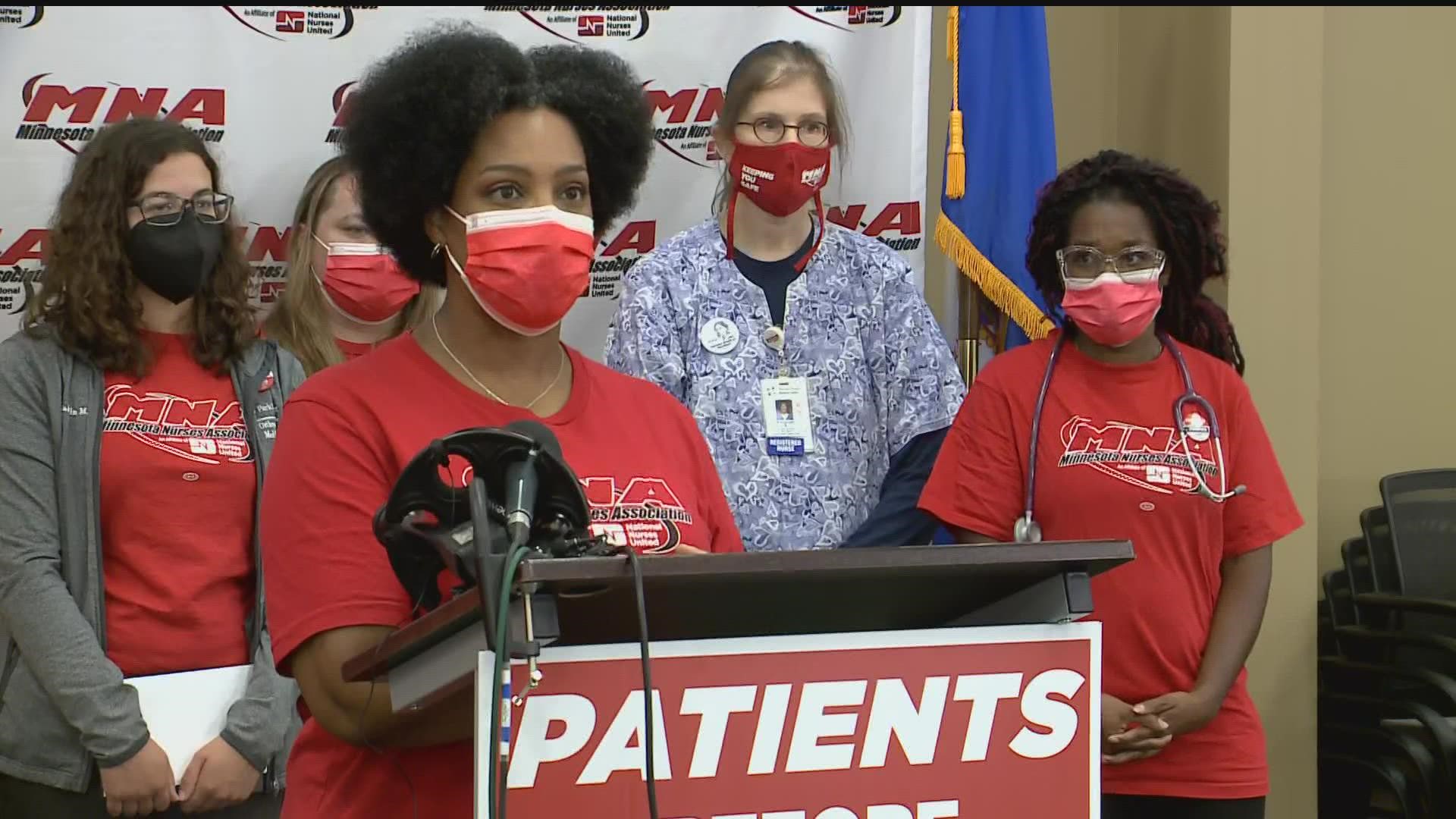MINNEAPOLIS — More than 15,000 nurses have made it clear, that they've had enough on Tuesday morning.
"To North, we are just nurses," North Memorial nurse Brianna Hnath said. "They do not value us as mothers, fathers, family members or people."
On top of wage increases, the nurses who voted to authorize the strike are asking for safer conditions and better staffing.
"Increase nursing staff, means better patient to nurse ratios, which means better patient care and better patient outcomes," Tracie Ducksworth said. Ducksworth is a mental health nurse at Fairview.
So if the nurses were to leave the bedside and walk the picket line, what happens to the patients?
According to a 2012 study called, 'Do Strikes Kill? Evidence from New York State,' co-authors Jonathan Gruber and Sam Kleiner analyzed data on nurses strikes in New York state from 1984 to 2004.
In hospitals, mortality increased by 19.4 percent and hospital readmissions increased by 6.5 percent for patients admitted during a strike.
And it seems, the Minnesota Nurses Association is keenly aware of the consequences of them not being at work.
"We are about to have three level-one trauma [units] in the state be out of commission," MNA President Mary Turner said. "And I don't care how much they say, 'our hospitals will keep running just fine without all those nurses.'"
However, whether strike action has a negative impact on patient outcomes is not clearly correlational.
Another publication done by Dr. Ryan Essex, which reviewed 15 studies that looked at strike action on patient morbidity, majority of the studies reported that strikes had a neutral or mixed impact on patient morbidity. The review was published December of 2021.
It concludes "that strikes have a negligible impact on patient wellbeing. Further research is needed however to examine a broader range of patient outcomes and to better understand how patients utilize services during strike action."
"To go on strike is one more moral injury that we have to hold in our hearts, because we do it so unwillingly," Turner said on Tuesday. "We don't want to be so-called abandoning our patients, we see our fight as fighting for our patients."
Twin Cities nurses have been working without contracts since May 31, and the Twin Ports nurses have gone since June 30. The vote means union leaders can call for a strike at anytime, but they are required to give employers at least a ten day notice, prior to a work stoppage.

